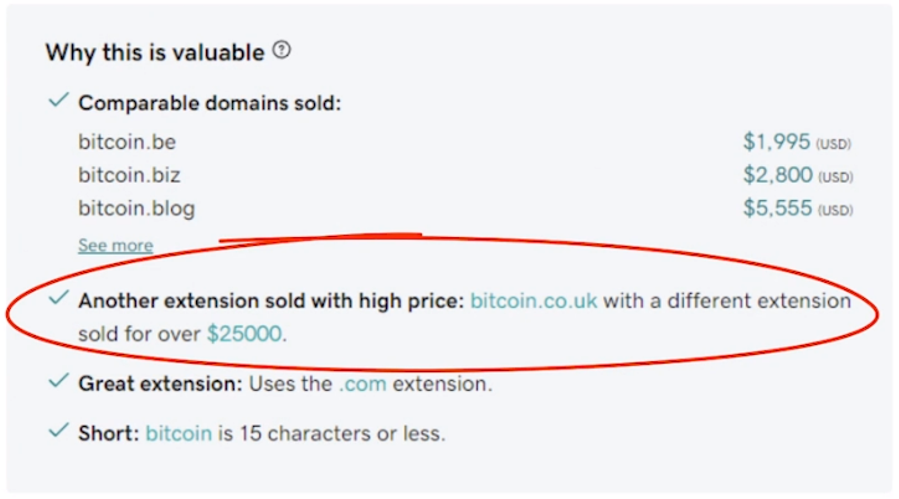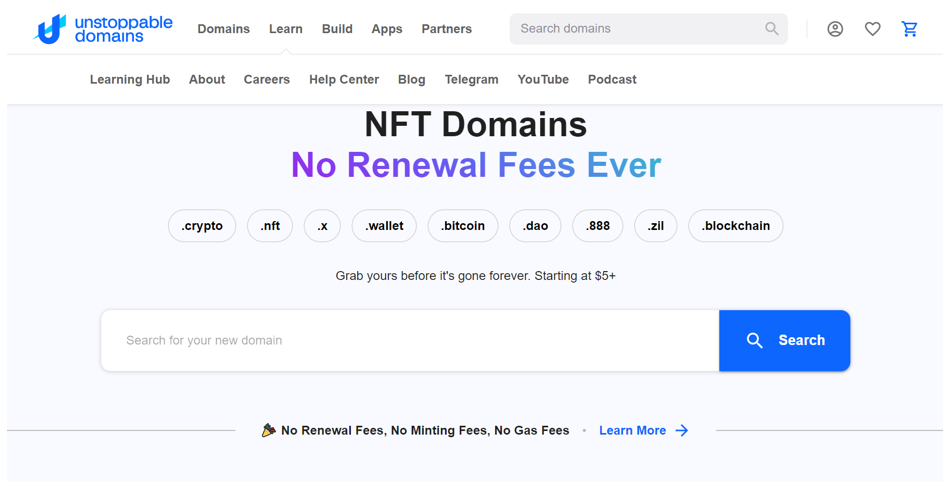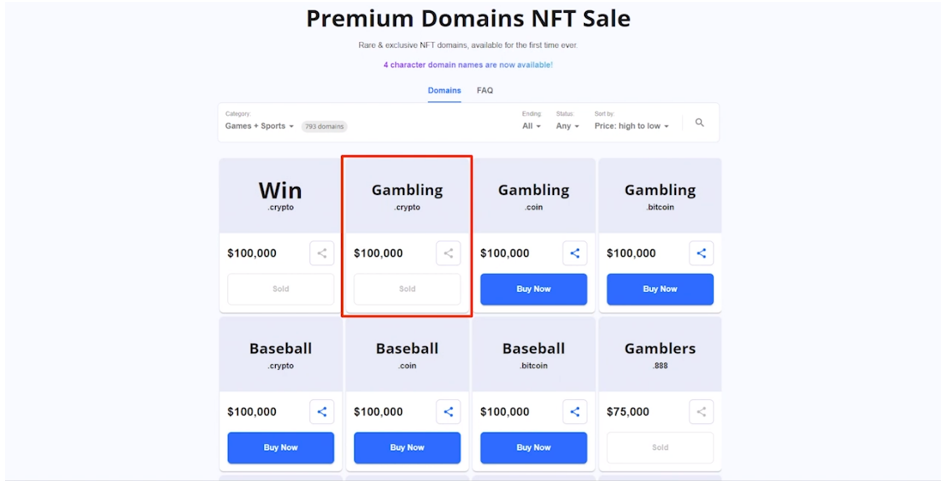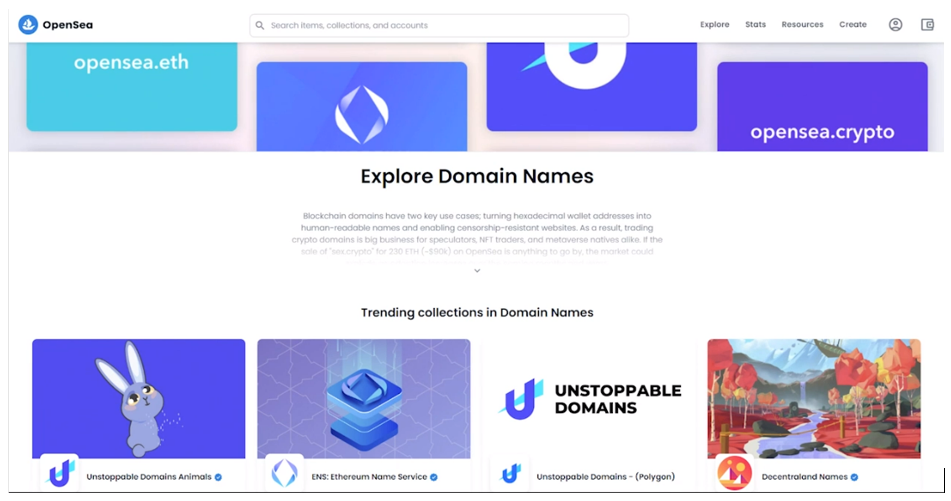 |
| By Chris Coney |
If you've ever visited a website, you're probably already familiar with domain names. In fact, you've likely used hundreds of them.
Domain names are the letters you type in your browser's address bar to access a website. They're exactly what the words suggest — the name of a particular domain on the internet.
So, if you own a name, then whatever is hosted there is your domain.
For instance, WeissRatings.com is the domain of all the Weiss Ratings services.
To understand how domains work, think of a post office box ...
P.O. boxes act as a proxy for your real address, meaning you don't have to let others know exactly where you live. This, in turn, protects your privacy. And it's also convenient because if you move, you can simply change the address your P.O. box is forwarded to.
Domain names work exactly like that. They represent the real address of a computer server on the internet and typically consist of a word or set of words that are easy to remember.
And the same principles apply. For example, if you wanted to move your website to a different server in another country, you would update where the domain forwards to. Afterward, individuals would be able to continue accessing the domain without having to know that a change was made.
This poses two questions:
- Who keeps track of these domains?
- And who makes sure a domain name is only used by one person?
As with most things in web2, the answers to these questions ultimately lead back to a centralized organization.
Each country typically has a non-profit organization that maintains a central database listing all the domain names, who currently owns them and which domain registrar they were registered with.
In the U.K., this institution is called Nominet. For Canada, it's the Canadian Internet Registration Authority. And in the U.S., it's the Internet Corporation for Assigned Names and Numbers.
Each organization manages domains that relate to their specific geographic region, such as the ".co.uk" domain name extension.
That's how a global network like the internet and pre-internet considerations, such as geography, overlap.
The more business that's done on the internet, the less national considerations will matter. Think like the metaverse.
So that's how the domain names industry is organized right now.
And since this structure was formed, there have been companies and individuals known as Domainers who make a business out of buying desirable (or potentially desirable) domain names and sitting on them until they acquire value.
Imagine if you had predicted the potential of Bitcoin (BTC, Tech/Adoption Grade "A-") in 2009 and then went ahead and registered Bitcoin.com just in case it took off.
While it's difficult to value domain names in advance, the last time Bitcoin.co.uk changed hands, it did so for $25,000.
That's quite a lot, considering the original purchase price was $25.
Now, that doesn't mean you can just go around registering CocaCola.com (KO) and McDonalds.com (MCD) because they're registered trademarks.
If you do things like that, those companies can apply to the domain authority in their country and have the domain taken from you for the offense of cybersquatting — the unauthorized use and registration of domain names that violate the rights of trademark owners.
They're allowed to do that because there's a central authority maintaining the database.
However, as we're advancing to web3 domains, which are non-fungible tokens, no such remedy exists. This is because their ownership is secured by blockchain technology.
So NFT domains have their own set of domain extensions, such as ".crypto," ".nft," ".wallet" and so on.
One place where you can buy a web3 domain is Unstoppable Domains.
They mint the domains as NFTs and then issue them to you —and at that time you gain full ownership. This is because ownership is determined by the Ethereum (ETH, Tech/Adoption Grade "A") blockchain, a database that no one has authority over.
The only people who can alter records in the Ethereum database are the people who own each individual record.
In this case that would be you … the only person allowed to move assets out of your wallet.
This is the basis for domain names in web3 to be an investable asset class. It also demonstrates how broad the NFT category is.
One of the major benefits of NFT-based domain names is that they don't carry any renewal fees.
In web2, you never really own your domain name. You technically lease it from the central authority and pay renewal fees every year in order to keep it.
In web3 — where domain names become NFTs — you mint it once, it arrives in your wallet and that's it. It acts like any other crypto asset from that point on, meaning it stays there until you do something with it.
Unstoppable Domains is able to charge as little as $5 per domain because as the NFT creators, they receive a royalty payment every time a domain is bought or sold on the secondary market.
So, for Unstoppable Domains, their revenue doesn't really come from selling a lot of domains. The money for them is in getting lots of domains out there that are actively traded.
In many ways, web3 outperforms web2, but it has one obvious drawback when it comes to cybersquatting.
If someone goes ahead and registers an NFT domain name of your company, there's no central domain authority to appeal to.
However, there's still the legal system. So, if they ever try attaching that domain name to a real business or organization, then you have someone to go after legally.
If, however, they remain anonymous and squat on the domain forever, there's nothing anyone can do about it. You'd just have to register your company name with a different extension.
So as an NFT domain investor, it's great to mint potentially desirable domains, but don't try and siphon off value from an existing company or brand name.
The ones to go for are domains that may be used by a company in the future … but are not an actual company name.
For example, if we go to the premium section of Unstoppable Domains, we see names like Gambling.crypto selling for $100,000:
Typically, the shorter the name before the dot, the more valuable it is.
Now, I have a two final notes about investing in NFT domains.
First, you can put NFT domains up for sale on OpenSea like any other NFT-based asset.
And second, it's so early in the game for web3 that many web browsers don't even support these domains.
Currently, the Opera browser and the Brave browser support these blockchain-based domain names out of the box. Many others do not, but they'll have to in the near future.
This makes an even bigger case for NFT domain investing … if you're willing to mint a couple NFT domains now and sit on them, you'll be way ahead of the game before most people even have a clue what they are.
That's all I've got for you today. Let me know what you think about the future of domain names by tweeting @WeissCrypto.
Make sure to tune in next week for my next crypto update.
See you then,
Chris Coney





